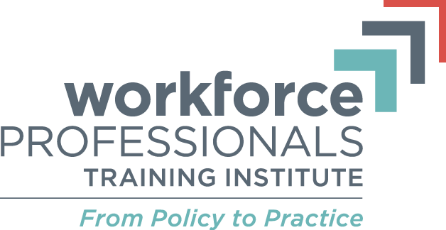
As part of our series of conversations with members of the WPTI team regarding their career development and areas of expertise, we are pleased to share reflections from an interview with Yanni Deconescu, WPTI’s Director of Project Management, who joined WPTI in Fall 2020 and who brings years of experience in workforce development, project management, and leading teams and projects across multiple industries.
From Retail Management to Workforce Development
Born in Romania, Yanni brings a wealth of experience spanning manufacturing, youth services, retail management, and ultimately workforce development. As Yanni says, “careers are often non-linear.” When he came to New York, he was interested in a variety of fields, including human services, but saw that retail had the most entry points, especially given his background and experience. He started off as a sales associate, and with a positive attitude and willingness to learn, he quickly progressed into a management position. For several years, he worked in retail management at JC Penny, Banana Republic Soho, and Bloomingdale’s 59th Street. As Yanni’s role expanded at Banana Republic, he was responsible for hiring and training staff and opening a new store. While he enjoyed this work, he was still searching for his purpose in life.
While still working in retail management, Yanni pursued an undergraduate degree in Human Resources and Labor Relations from Empire State College, followed by a graduate degree from the School of Industrial and Labor Relations at Cornell University, as well as additional coursework including a certification as a Global Career Development Facilitator. It was during his undergraduate studies when he took a course in career development, which he described as his “cornerstone”. He thought to himself, “If this course benefited me, how can it benefit others?” How can I share what I’ve learned?” In particular, he wanted to use his knowledge and experience to support a variety of communities that have historically faced barriers to employment and career development, including immigrants, youth, individuals with disabilities, and people facing unemployment and underemployment. Through his network, he found an opportunity at Good Old Lower East Side (GOLES), where he led programming for the Jobs to Build On (JTBO) program and served as a representative for the Lower East Side Employment Network (LESEN). He then moved on to a larger organization, Opportunities for a Better Tomorrow, where he took on a leadership position, before transitioning to WPTI.
The Importance of Transferrable Skills
When Yanni reflects on his transition from retail management to workforce development, he emphasizes that many fundamental skills are highly transferrable. For example, interpersonal skills and customer service are always important, and a good rapport can improve retention among retail customers as well as human services clients. Project management skills are also essential, across multiple fields, and include things like understanding goals and metrics, knowing how to plan effectively, and effectively implementing processes and systems. In spite of these fundamental skills, Yanni did have to adjust to some elements of the non-profit human services culture, including more limited resources. However, he used this as an opportunity to be increasingly entrepreneurial and creative, adapting and applying knowledge and skills from his past career to this new environment.
Yanni utilized his understanding of the mentality of businesses and employers to educate jobseekers and help them speak the employer’s language and understand their priorities. He brought in guest speakers from the retail sector, who could provide direct, firsthand insight, and he turned formal colleagues into employer partners. Yanni stresses the importance of adaptability – “In any kind of environment, you need to learn how the systems work – learn the mechanics, learn to immerse yourself in the culture.”
Effective Project Management
As Director of Project Management, Yanni is responsible for planning a leading a diverse array of projects and initiatives, and managing WPTI’s processes to ensure our work is implemented in an organized, efficient manner. However, he has been learning elements of project management since childhood. He stresses that workers looking to become better project managers can pull from their personal experience. We use project management in our daily lives,” he says. “We just don’t call it project management.” Growing up, Yanni watched his parents plan – with regard to work, expenses, and daily life – and incorporated these lessons as he managed increasingly challenging projects as an adult. As a project manager, he sees himself as the “glue” of a team, supporting a team and helping it stay focused. In this role, it is important to stay level-headed, to manage emotions and deal with the inherent ups and downs of a project. He emphasizes the following key skills and attributes that a successful project manager should possess:
- Adaptability
- Willingness to accept feedback and hold oneself accountable
- Integrity
- Collaborative mentality
- Openness to taking risks
- Problem solving skills
Lastly, and perhaps most importantly, he emphasizes that project managers should set short-term benchmarks and goals, and to celebrate success when those goals are reached, as a way of progressing toward the longer-term, larger-scale project goals.
Looking to the Future
Reflecting on his career, Yanni is quick to mention all the people who have mentored him, and who have taught him valuable lessons. These include workforce leaders like Jeanie Tung of Henry Street Settlement, Gaspar Caro of LESEN, Damaris Reyes of GOLES, and Liliana Polo-McKenna of Opportunities for a Better Tomorrow, and business leaders like Randy Peers of the Brooklyn Chamber of Commerce , Andrew Kimball of Industry City, and Tom Abrams at Bloomingdale’s. A lifelong learner with a commitment to “servant leadership,” Yanni’s plans for the future include a commitment to further developing his skills so that his team and community can benefit.
